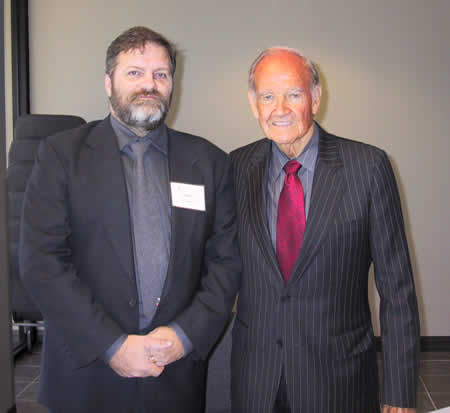My poker and politics obsessions come together in a post at the Cake Poker blog that refers to a story by Randall Lane about Barack Obama’s poker-playing days in Illinois in The Daily Beast:
Lane puts all this information together and says that Obama’s concessions to the Republicans on the tax bill, the federal wage freeze and “unreciprocated health-care and fiscal concessions” that they’re confident in their ability to bluff the president. That’s bad news for him since the Republicans will be in control of Congress for at least the next two years, where they’ll have plenty of time to make him fold his medium-strength hands to their unsuited garbage. If the president is as big a nit as The Daily Beast suggests, he’d better hope his stack doesn’t dwindle to where he has no fold equity before the next election.
You can probably make out the sense of that without knowing the specific terminology, but a “nit” is someone who us si risk-averse that they can often be forced out of a hand they’re not absolutely sure of. “Fold equity” is the amount of money you can bet to force other players to back down; if you don’t have many chips it’s difficult to protect weak hands or to bluff because it costs little for others to match your bet.
As I wrote back in July, poker is a game of imperfect knowledge, unlike tic-tac-toe or chess. You can sometimes be sure you have the absolute best combination of cards but that’s not the usual situation, particularly in the early stages of betting in a hand when you only know about a portion of the cards that will be dealt. This is from Lane’s article:
“He wasn’t a bluffer,” says [Will County executive Larry] Walsh. “When Barack was betting, you could pretty much know that he had a hand.”
[State Senator Terry] Link remembers more bluffing, to a point: “He bluffed, with the cards. He wasn’t going to bluff with a total longshot.” In poker parlance, this is known as a semi-bluff: even if you’re called, you still have a so-so hand as insurance.
And if his opponents bluffed? Both Link and Walsh remember Obama as disinclined to engage unless he already held an overwhelming advantage. “If he was chasing [another card to complete a straight or flush], he’d give her about two shots and then fold,” says Walsh.
If nothing else, John Boehner, Mitch McConnell and the GOP Republicans have demonstrated their bluffing proficiency. Obama confirmed as much at yesterday’s press conference: “I have not been able to budge them. And I don’t think there’s any suggestion anybody in this room thinks realistically that we can budge them right now.” There’s only one way to find out, but Obama, lacking an overwhelming hand, has been unwilling to do so over the first two years of his presidency.
Then again, the other possibility is he’s getting exactly what he wanted.

